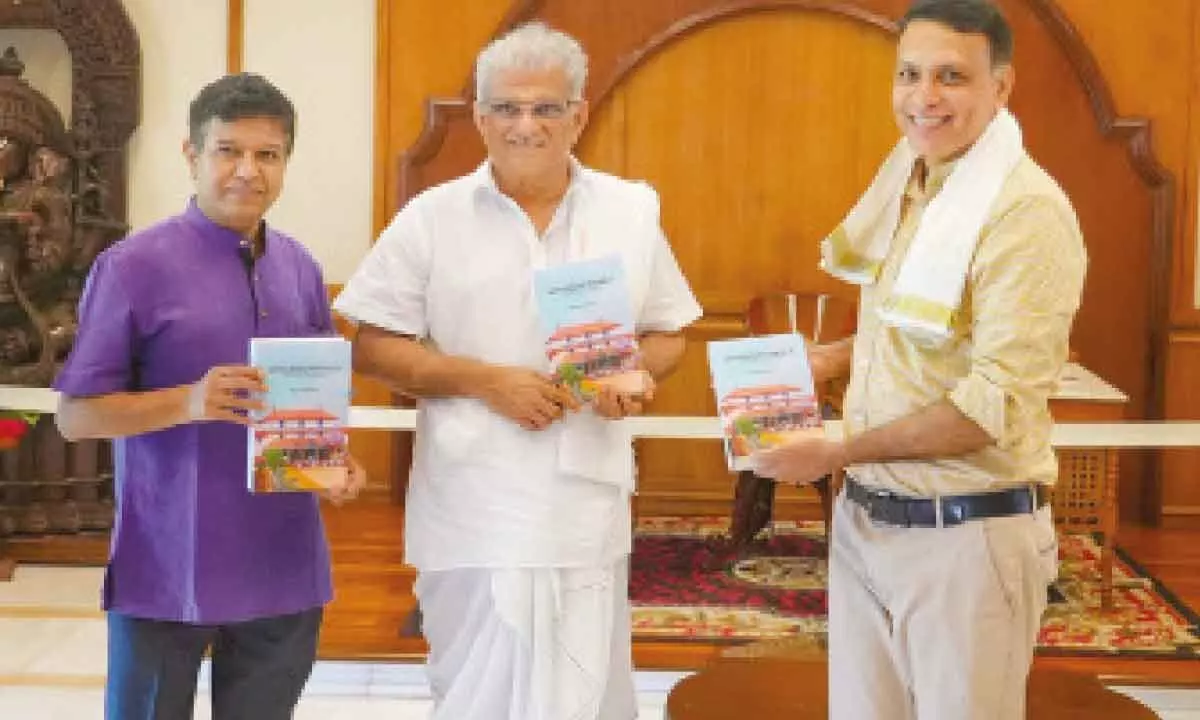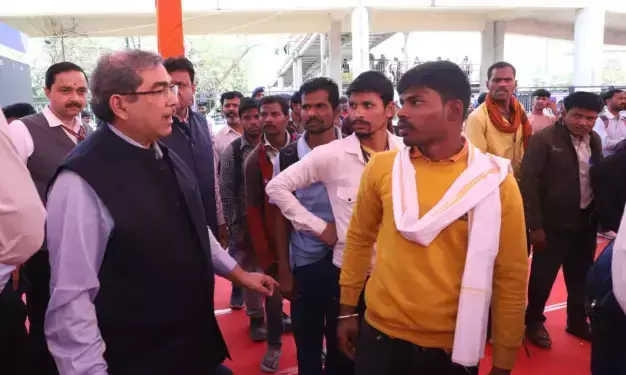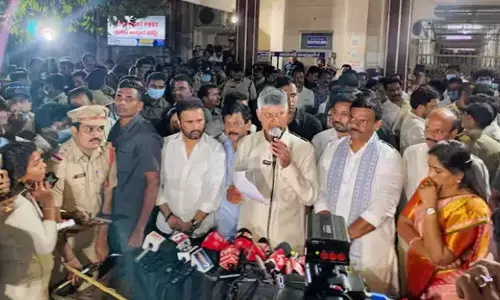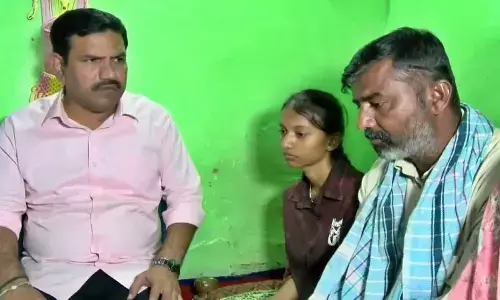Book on Dharmasthala: A tale of the first Indian idea of Atmanirbharta

Dharmasthala: It is one of the rare books on how a temple town spread the spirit of self-reliance (Atmanirbharata) in the socio-economic and political milieu that has spread all across the state of Karnataka if not India.
The scholarly book written by senior journalist and author Dr. Nagesh Prabhu dwells deep into how the alleviation of poverty through Self Help Groups in the rural set of Dakshina Kannada, bloomed into a national idea of self-reliance right from the roots of the society and climbed up as a tenable model of rural development, economic empowerment and self-employment of the rural folks. All this stemming from the Dharmasthala temple known for piety and compassion.
The book aptly entitled ‘Dharmasthala: Mantra of Development’ has been published by the Manipal University Press owned by the Manipal University. It was launched in a simple event held at Dharmasthala by Dr. D Veerendra Heggade the Dharmadhikari of Dharmasthala recently.
The book is a well-researched treatise, largely based on extensive field work and interviews of hundreds of beneficiaries by the author for more than a year on various social and anti-poverty schemes and implementing officials in different districts of Karnataka. It gives a new dimension to the “Dharmasthala Model of Development.” It dwells on the bottom-up approach adopted by Dharmasthala towards development and not the so-called trickle-down model followed by Indian government and state government agencies.
The author explains the various facets of the Dharmasthala’s model of development interspersed with ideas of secularism, socialism and welfarism that are integral to the Indian Constitution.
Various Temple trusts headed by Dharmadhikari D. Veerendra Heggade, Padmabhushan awardee and the member of the Rajya Sabha (the upper house of the Indian parliament), have been implementing numerous socio-economic welfare programmes for the past 55 years for upliftment of the poor, small and marginal farmers, women and downtrodden people.
He launched many anti-poverty, social and cultural programmes much before the Indian and Karnataka governments started them, and implementing the welfare schemes, which largely come under the purview of the government. Temple trusts headed by Heggade runs close to 100 educational, rural development institutions, including schools and colleges and a university, and has more than 75,000 employees.
The book explains how the Dharmadhikari institutionalized the charities of the temple by setting up Shri Kshetra Dharmasthala Rural Development Project (SKDRDP) and the Rural Development and Self-Employment Training Institute (RUDSETI), which have branches across Karnataka.
It depicts how Heggade has over the last four decades carried out his unique brand of service and the foresight in launching many start-ups. Both SKDRDP and RUDSETI, according to the book, have transformed many youth from job seekers to job providers through entrepreneurial training and financial aid.
The book examines role of SKDRDP and RUDSETI in giving voice to the voiceless and facilitating social and economic inclusion of the poor. Both institutions played a vital role in replacing moneylenders and offered institutional support, financial aid to SHGs, scholarships for students, pensions to the destitute, and other basic necessities to people across villages in Karnataka and parts of neighbouring Kerala. The author hails the Dharmadhikari as a real ‘Karma Yogi’ with great vision.
Nagesh Prabhu is a senior journalist and writer, settled in Bengaluru, India. He is the author of the books Reflective Shadows: Political Economy of World Bank Lending to India (2017) and Middle Class, Media, and Modi: The Making of a New Electoral Politics (2020). He holds a PhD in political
science.









